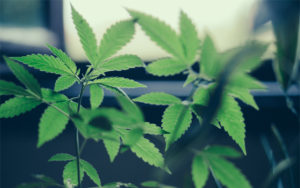 In 2016, Florida voters approved a constitutional amendment that allowed the use of medical marijuana.
In 2016, Florida voters approved a constitutional amendment that allowed the use of medical marijuana.
Florida voters approved Amendment 2 authorizing the use of marijuana as a medical treatment for people with debilitating medical conditions, with 71 percent voting yes. But lawmakers limited its scope by directing patients who qualify to obtain medical marijuana to use only oils, sprays, tinctures, vaping and edibles.
Lawmakers excluded smoking as a method for medical treatment, arguing that smoking would be a “backdoor attempt” at allowing recreational use. Just last month a three-judge panel of the 1st District Court of Appeal ruled in a lawsuit initiated by supporters of smokeable medical marijuana who maintain that a Florida law barring patients from smoking their treatment runs afoul of the 2016 constitutional amendment.
The appeals court chided a Tallahassee judge who sided with patients, saying plaintiffs likely won’t win on the merits of the case and refused to allow smokable medical marijuana while the legal fight continues.
However, medical marijuana backers assumed that approved patients would be able to smoke it.
Cathy Jordan, one of the plaintiffs in the case, credits a daily regimen of smoking marijuana with keeping her alive decades after doctors predicted she would die from Lou Gehrig’s disease. Jordan, who grows her own pot, testified that smoking marijuana treats a variety of life-threatening side effects of the disease and that other forms of ingestion don’t have the same positive impact.
The legislation passed and subsequently signed by Governor Rick Scott restricts those who are eligible to use marijuana as well as the forms of its use.
Rachel Nordby, the lawyer for the state, argued that the implementing law is “entirely consistent” with the Constitution because the state “has a role in setting parameters and it can absolutely base those parameters on health and safety concerns.”
“The Legislature here has enacted a law that embodies reasonable safety concerns of medical use,” she said, adding that it “contemplated that it was making the flower form available through vaping.”
“This case is not about what is or what is not marijuana,” she said. “What this case is about is the permissible plain uses of marijuana.”
If you think this is frustrating, go visit the state website on the issue. There are more restrictions and disclaimers than you can shake a stick at. At the bottom of the website there is a note, “Medical marijuana is available in Florida, however, remains illegal under federal law.”
This is a mess and throws into question the efficacy of the constitutional amendment passed overwhelmingly by voters in 2016.
